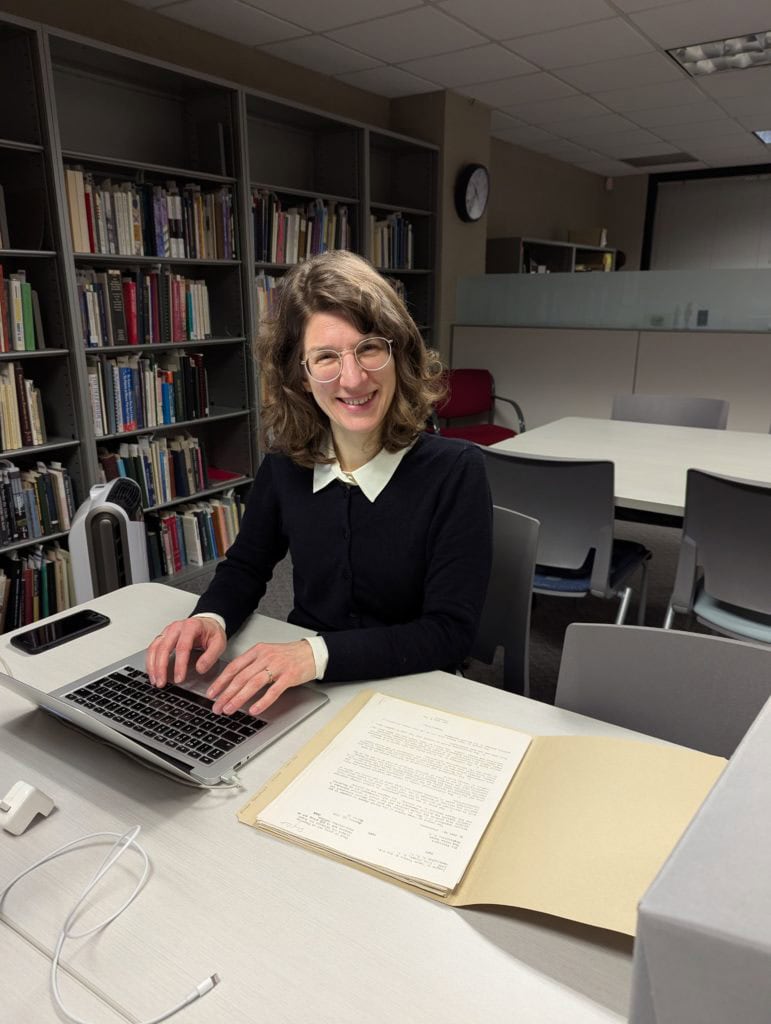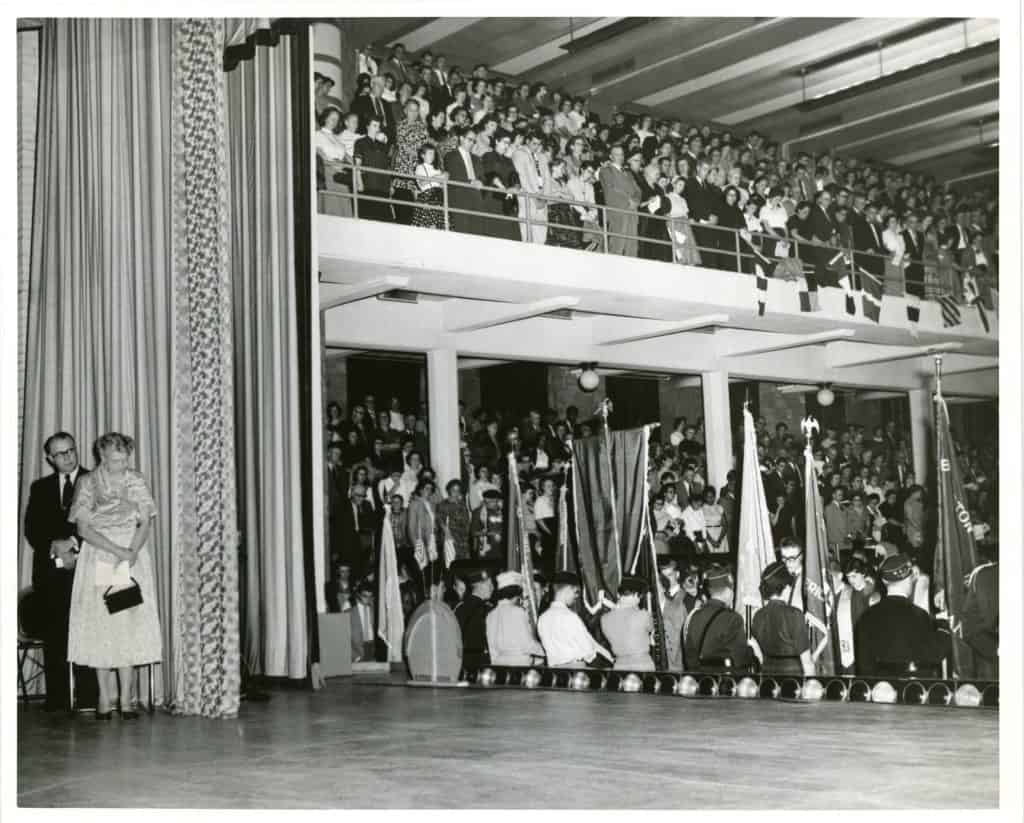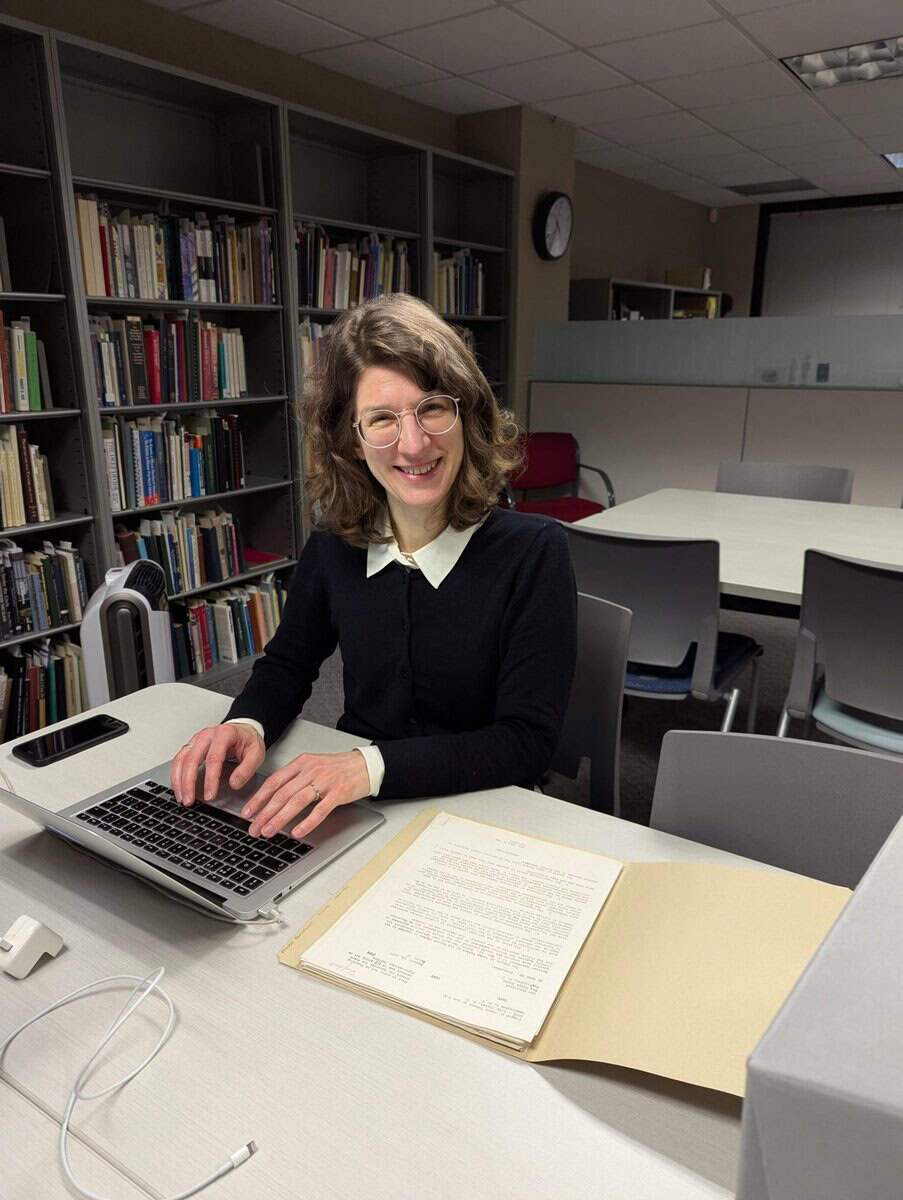Every year, the Iowa Women’s Archives (IWA) awards the Linda and Richard Kerber Travel Grant to a scholar whose work would benefit from an extended visit to the archives and who resides more than 100 miles from the IWA. Katharina Rietzler, PhD travelled a lot further than 100 miles; she came all the way from the United Kingdom. Rietzler is an American history professor at the University of Sussex whose work focuses on international relations, and women as international thinkers. She is the co-editor of the 2021 volume Women’s International Thought: A New History, and her article “U.S. Foreign Policy Think Tanks and Women’s Intellectual Labor, 1920 – 1950” won the 2023 Arthur Miller Institute Article Prize from the British Association for American Studies. Now, Rietzler has embarked on a book project, tentatively entitled Women’s International Thought in U.S. Public Culture: A Divided History.

Rietzler believes that women’s thinking on foreign policy issues such as international trade, anti-communism and the U.S. President’s treaty-making powers were a dividing line between centrist-liberal and conservative women in 20th-century America. In an initial visit to the University of Iowa’s Special Collections and Archives she focused on the publications of far-Right and conservative women such as Phyllis Schlafly in the Social Documents collection. Once here, she realized that the IWA had enough collections to require another international trip and applied for the Kerber Grant. For this visit, Rietzler was particularly interested in how the foreign policy divide she identified manifested in women’s civic culture and non-partisan organizations such as local and regional chapters of the League of Women Voters (LWV).
Although voters today might not think of foreign policy as a top concern, Rietzler contends that in the mid-20th-century U.S., there was a culture of interest in international affairs present in women’s civic life. The mass-circulation Ladies’ Home Journal had a regular column on the subject and the national LWV organization featured foreign policy prominently in their publications. LWV quizzes such as “Am I an isolationist?” helped women in chapters across the U.S. define where they stood on foreign policy issues.
Rietzler spent most of her visit researching the papers of Dorothy Schramm, a political activist and Republican Party member from Burlington, Iowa. Schramm had been educated at New York City’s Barnard College, a women’s college with a strong internationalist ethos that Schramm conveyed to her midwestern audience. In Iowa, she was a founding member of Burlington’s chapter of the LWV and a prominent advocate for the United Nations (U.N.). In Schramm, Rietzler found “a historical actor who lived the ideal of a ‘woman world citizen,’ and who represented a valuable example of internationalism in the region. She characterized Schramm as “a good example of a typical type of woman activist… she’s very close to the world of policy and politics though she doesn’t have a formal office herself. She knows how these things work.”
Rietzler argued that Schramm’s successful planning of the 1955 U.N. Day celebration in Burlington, Iowa, exemplified her abilities. Rietzler was surprised to find U.N. Day marked in Iowa and celebrated so vigorously, contradicting the isolationist reputation of the region. In part thanks to Schramm’s steadfast advocacy and political skill, former First Lady Eleanor Roosevelt kicked off her midwestern speaking tour on behalf of the U.N. in Burlington. The event attracted a crowd of over 3,000 people. Images of the event, preserved in Schramm’s papers, were among Rietzler’s favorite finds from the research trip.

At the IWA, Rietzler encountered the experiences of everyday women that she hadn’t found in national archives she had already visited. The examples of women like Schramm and others represented in collections like the League of Women Voters of Johnson County complicated the Midwest’s reputation as an isolationist stronghold. As she scopes out her book, Rietzler is still thinking through the implications of what she’s found. To what extent is Iowa an example of larger regional trends and experiences, and to what extent is it unique? We at IWA cannot wait to read her conclusions!
Are you interested in applying for the Linda and Richard Kerber Fund for Research in the Iowa Women’s Archives? We accept applications every spring. You can keep tabs on the deadline and learn more on our website.
